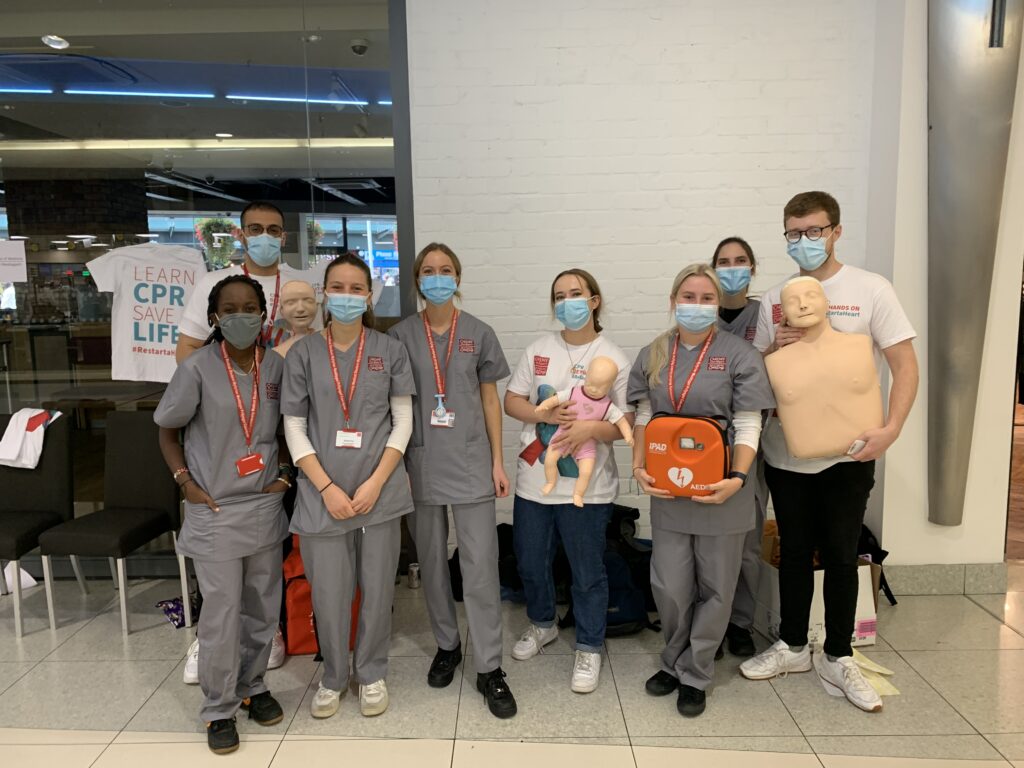‘First-of-its-kind’ life-saving scheme is launched by Cardiff University students

A group of student doctors at Cardiff University has launched what they believe to be the first scheme of its kind in the world to teach life-saving skills to students.
Students Save Lives will be rolled out across the University, with the hope it could eventually be expanded to institutions across Wales.
Students from the Schools of Medicine and Healthcare Sciences have worked with the Welsh Government-backed Save a Life Cymru programme to bring about the scheme, which equips students with the basics of CPR.
Wales has one of the lowest out-of-hospital cardiac arrest survival rates in Europe; just one in 20 survive, while in Norway and the Netherlands this figure is around one in four.
“We have a huge population of 33,260 students here at the University, which is an amazing, as yet untapped, resource of intelligent and enthusiastic learners who could save lives if they are equipped with the right skills,” said Elliot Phillips, 22, the fifth-year medical student who is leading the effort.
“It’s a real opportunity to address the current very poor rate of survival in Wales. For every 3,000 out-of-hospital cardiac arrests in Wales just 200 people survive, and for every minute that someone doesn’t get CPR, their chances of survival decrease by 10%.
“The more people who know basic CPR across the country the better – our simple and cost-effective scheme could save many lives.”
The scheme is being piloted this month at the University’s School of Journalism, Media and Culture, with training days for 228 first-year students. It is hoped training for all new students will take place from the new academic year.
In future, the organisers hope it will become an integral part of the University’s curriculum for first-year students – and eventually be offered to all University students. They are currently in talks with other Welsh universities to expand the scheme – a potential resource of more than 130,000 students, said Elliot.
The scheme offers a two-step approach; an immersive online course using 360-degree camera technology before an hour’s in-person session. The training is led by healthcare students – the majority trainee medics – with support from Save a Life Cymru partners such as the British Heart Foundation Cymru, Calon Hearts and St John’s Ambulance.
“It’s a completely student-led initiative, taking in the latest research and technologies – and we think Cardiff is the first university in the world to launch a scheme like this,” said Elliot, who is currently intercalating to complete a degree in emergency, pre-hospital and immediate care.
“Denmark introduced a similar scheme in schools, and it quadrupled the country’s cardiac arrest survival rate.
“The scheme has been down to the hard work of a small group of students and an advisory board of senior University academics. All our equipment, including 40 CPR manikins and three training defibrillators, has been donated by our charity partners. We are currently in the process of seeking funding to allow us to roll-out University-wide.”
Professor Steve Riley, Head of Cardiff University’s School of Medicine, said: “It is a real pleasure to work with such enthusiastic and innovative students to develop this scheme which has the potential to have a real impact for the people of Wales and more widely.
“Passing on basic life support skills for the benefit of the public demonstrates the importance of undergraduate healthcare training in Wales. The commitment to make a difference, from everyone involved in this project is clear.”
Professor Emeritus, Dr Len Nokes, Chair of Save a Life Cymru, said: “Save a Life Cymru are very proud to support Students Save Lives – it is such an inspirational project that will help to save many lives. Anyone, at any age and at any time can suffer a cardiac arrest and the best thing to do in this situation is to have a go at CPR and using a defibrillator.
“This project will equip thousands of Cardiff University students with simple life-saving skills that will not only benefit communities here in Wales but people all over the world.”




